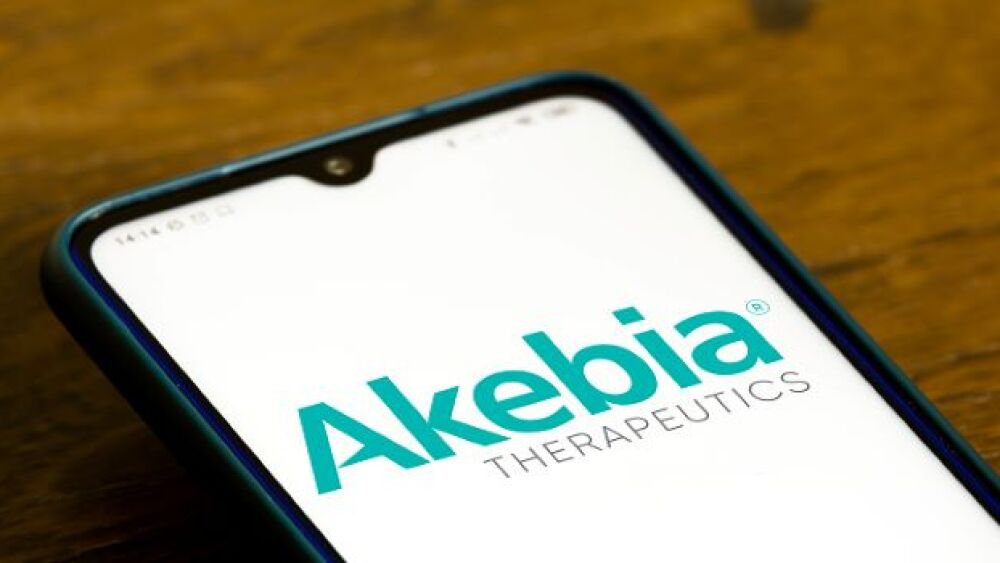Akebia Therapeutics announced another delay Tuesday in a series of setbacks for vadadustat, being developed to treat anemia linked to chronic kidney disease.
Courtesy of Getty Images
Akebia Therapeutics announced another delay Tuesday in a series of setbacks for vadadustat, being developed to treat anemia linked to chronic kidney disease (CKD).
The FDA issued a second interim response to Akebia’s appeal for vadadustat to notify the company the determination would now be assigned to Peter Stein, M.D., director of the Office of New Drugs. In reaction to the news, the company’s stock fell 9% in pre-market trading.
Stein said he would seek internal consultation with nephrology, cardiology and liver safety experts in the OND to complete the review. The move will further delay the final determination of the fate of the appeal.
Vadadustat is an oral hypoxia-inducible factor prolyl hydroxylase inhibitor designed to mimic the physiologic effect of altitude on oxygen availability.
The drug completed Phase III clinical trials to treat anemia in CKD patients; Akebia then submitted a New Drug Application to the FDA for approval.
Then, in March 2022, the FDA rejected the treatment for CKD-linked anemia, citing safety concerns.
In particular, the agency noted reservations with the therapeutic, including thromboembolic events and the risk of drug-induced liver injury. The data does not support a favorable benefit-risk assessment of vadadustat for dialysis and non-dialysis patients, the FDA concluded.
Akebia submitted a Formal Dispute Resolution Request to the FDA in November 2022. One month later, the regulator issued an interim response requesting additional information to supplement Akebia’s appeal over the decision.
In September 2020, Akebia announced the results of vadadustat from two Phase III clinical trials. Participants included adult patients with CKD who were not on dialysis, and the trial failed to meet multiple safety endpoints.
Vadadustat is approved in Japan for dialysis and non-dialysis-dependent patients. Akebia developed the therapy with its former partner, Otsuka Pharmaceuticals.





